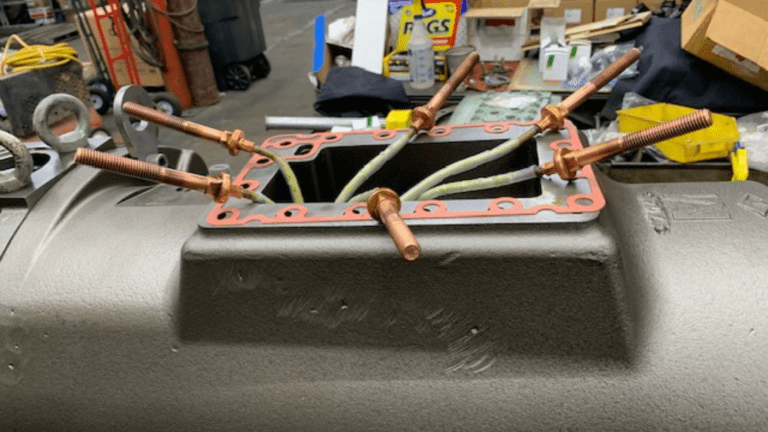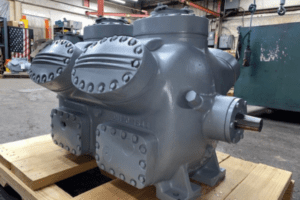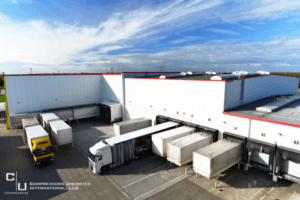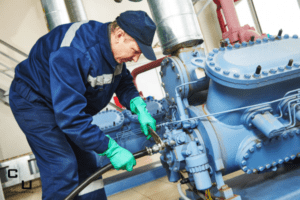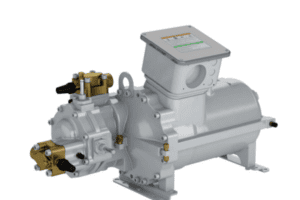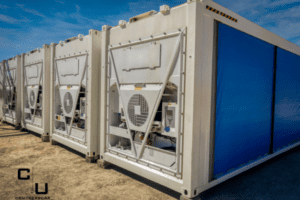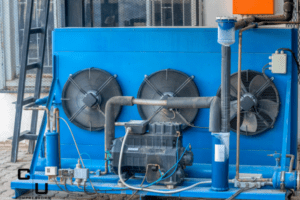The more important a purchase is, the more research you should do before you make a decision. That’s just as true of commercial compressors as other major purchases. Luckily, you’ve taken a valuable step by deciding to investigate remanufactured commercial compressors.
Done right, a remanufactured commercial compressor meets or exceeds the performance standards and environmental guidelines set by the OEM. That said, you need to be sure a supplier performs end-to-end remanufacturing, not just cleaning up the unit and slapping on a fresh coat of paint.
When you’re looking at remanufactured compressors for the first time, it can feel like one of the most complex purchases you can make for your business. But there are some steps you can take to simplify things and make it much more likely that you’ll get compressor equipment you can rely on.
Five Ways to Make Sure You’re Getting a High-Quality Remanufactured Commercial Compressor
You already know that a commercial compressor has the potential to save you time and money. It can come at a discount of 10%, 20%, or even more compared to equipment from an OEM wholesaler. And since most projects use your existing compressor core as a base, it can also cut weeks or months off your sourcing time.
Before you get there, though, you should compare your options. It’s always a good idea to look at more than one commercial compressor remanufacturer, no matter which one happens to be at the top of your Google search. Here’s how you can make the right moves to choose the best remanufactured compressor company:
Ask Plenty of Questions
First and foremost, ask questions of any potential vendor and take note of the answers. There’s a difference between a “remanufactured” and a “rebuilt” compressor – since rebuilt doesn’t have an official definition, it could mean the compressor has only been cleaned up, not re-engineered and thoroughly tested.
Ask any potential supplier about how deep their compressor remanufacturing goes, what components they use, and how they verify and document the finished unit’s performance. The remanufacture should strip the unit completely down and start with a bare compressor body, then remanufacture it to current specifications.
Remember, even the compressors you get directly from an OEM or affiliated wholesaler are usually used. The only “all-new compressors” come in larger pieces of equipment! So, you might as well maximize your value per dollar by using a remanufacturer, instead of paying extra for a brand name alone.
Look for Stickers or Stamps on the Commercial Compressor
Legitimate compressor remanufacturer companies strive for nothing less than a like new compressor. Not only should it meet or exceed current OEM standards, but it should be ready for a service life of ten years or more.
One of the indicators of a job well done is when the compressor remanufacturing company seals a compressor. This will usually be indicated with a stamp that shows the remanufacturing date and serial number. The serial number may differ from the original manufacturer’s serial number and be internal to the remanufacturer.
Stickers may also contain warranty or guarantee information. A remanufactured commercial compressor might still qualify for OEM warranty services if it is remanufactured according to the OEM’s requirements.
Ask for a Tour
One of the best reasons to use a compressor remanufacturer is that one in your region can cut thousands of miles off your supply chain. If you happen to be in the area, ask about a facility tour. This can give you a chance to see the remanufacturing process close up and ask additional questions before you make a purchase.
Don’t Assume Anything from the Paint
If there’s one thing about a commercial compressor that can be especially deceptive, it’s the outer appearance. Many so-called “rebuilt” compressors are simply repainted, with a few other changes. This can leave you paying a premium price for a compressor that might only function for a few weeks.
No matter how good a compressor looks on the outside, check for other signs that it’s been given a quality re-engineering. That includes any stickers or stamps as mentioned above. Be sure you know exactly what options you have in the event the compressor doesn’t work the way you expect when it reaches your facility.
Do Your Homework
Remember that there are several different kinds of commercial compressor remanufacturers out there. Some are independent third-party facilities that remanufacture a broad range of different compressors for clients. Others remanufacture compressors as part of their operations as a direct re-seller. Either can stand behind remanufacturing work by offering guarantees and warranties, so always try to maximize your benefits.
With these tips, you’ve got the background knowledge you need to make an informed choice about your remanufactured commercial compressor. Take it one step at a time to find the best unit at the best price.

